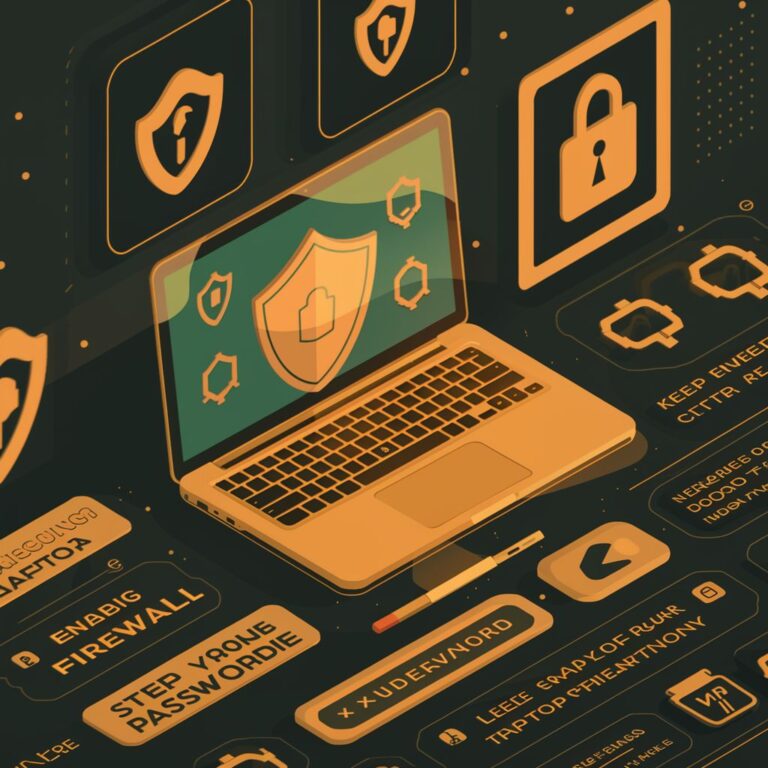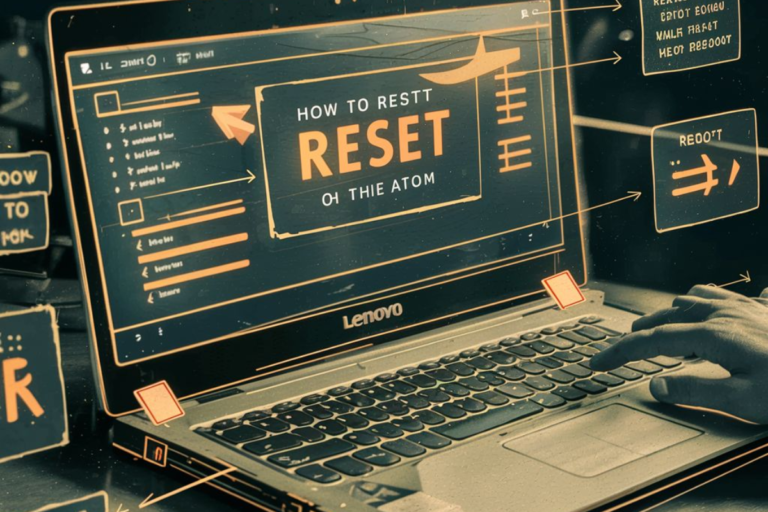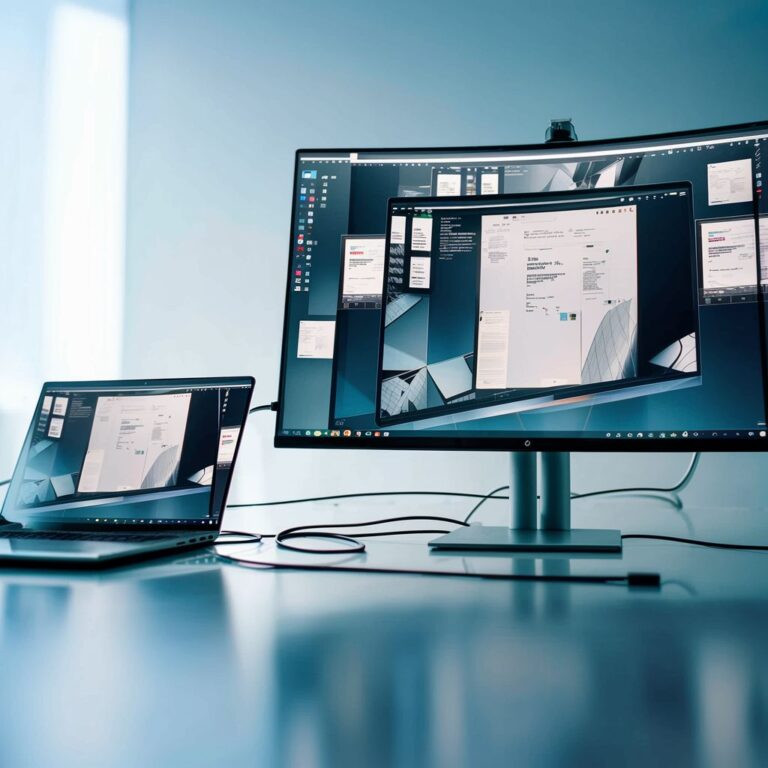Unlocking Value: The Ultimate Guide to Buying Used Laptops
The Growing Market for used Laptops can be Attributed to Several Factors
Cost-effectiveness: With the continuous release of new laptop models featuring incremental upgrades, the price of brand-new laptops remains relatively high. Many consumers opt for used laptops as a more affordable alternative to meet their computing needs.
Technological Advancements: As technology advances, the performance gap between older and newer laptop models narrows. This means that even slightly older laptops can still offer adequate performance for everyday tasks such as web browsing, word processing, and multimedia consumption, making them appealing to budget-conscious buyers.
Sustainability: With increasing awareness of environmental issues, there is a growing trend towards sustainable consumption. Buying used laptops extends their lifecycle, reducing electronic waste and minimizing the environmental impact associated with the production of new devices.
Availability of Refurbished Options: Many manufacturers and retailers offer certified refurbished laptops, which undergo rigorous testing and refurbishment processes to ensure they meet quality standards. These refurbished laptops often come with warranties and support, providing buyers with peace of mind when purchasing pre-owned devices.
Increased Reliability and Trust: As the market for used laptops grows, so does the infrastructure supporting it. Online marketplaces, specialized retailers, and refurbishment services have emerged, providing buyers with a wider selection of options and fostering trust through transparent selling practices and customer reviews.
Overall, the growing market for used laptops reflects a shift in consumer attitudes towards more sustainable and cost-effective purchasing choices, driven by technological advancements and an increasing emphasis on environmental responsibility.
Understanding the value proposition in purchasing used laptops is crucial for several reasons
Cost Savings: One of the primary benefits of buying a used laptop is the potential for significant cost savings compared to purchasing a new device. By understanding the value proposition, consumers can make informed decisions about whether the price of a used laptop aligns with its specifications, condition, and overall value.
Maximizing Resources: In a world where electronic waste is a growing concern, purchasing a used laptop extends its lifespan and reduces the need for new manufacturing. By recognizing the value in buying used, consumers contribute to a more sustainable consumption approach, helping minimize environmental impact.
Access to Higher Specifications: Buying a used laptop can provide access to higher specifications and features that may be out of reach when purchasing new due to budget constraints. Understanding the value proposition allows consumers to evaluate whether the performance and features offered by a used laptop meet their needs and justify the investment.
Risk Mitigation: Purchasing a used laptop inherently involves some risk, such as potential hardware issues or limited warranty coverage. By understanding the value proposition, consumers can assess the risks associated with buying used and take steps to mitigate them, such as researching reputable sellers, inspecting the device thoroughly, and considering extended warranty options.
Empowerment through knowledge: Understanding the value proposition in purchasing used laptops empowers consumers to make informed decisions based on their specific needs, preferences, and budget constraints. It allows them to weigh the pros and cons of buying used versus new and determine whether the potential benefits outweigh the risks.
In summary, understanding the value proposition of purchasing used laptops enables consumers to make cost-effective, sustainable, and informed decisions that align with their needs and values. It empowers them to maximize the value of their investment while minimizing risks and contributing to a more sustainable approach to consumption.
Perfect! Here’s a Breakdown of each Advantage
Cost savings Compared to Buying New: Used laptops typically come with a significantly lower price tag compared to their brand-new counterparts. This allows consumers to save money while still acquiring a functional and reliable device for their computing needs.
Access to higher Specifications at a lower price point: By opting for a used laptop, consumers can often afford higher specifications, such as better processors, more RAM, or larger storage capacity, that may be out of their budget if purchasing new. This provides better performance and functionality without breaking the bank.
Environmental Benefits of Extending the Lifecycle of Electronics: Buying used laptops contributes to environmental sustainability by extending the lifespan of electronic devices. This reduces electronic waste, conserves resources, and minimizes the environmental impact associated with manufacturing new laptops.
Potential for finding rare or Discontinued Models: The used laptop market offers the opportunity to find rare or discontinued models that may no longer be available new. This is particularly advantageous for users who prefer specific features or designs that are no longer produced, allowing them to fulfill their preferences and requirements.
Overall, these advantages highlight the value proposition of buying used laptops, encompassing cost savings, enhanced specifications, environmental sustainability, and access to unique models that may not be readily available in the new market.
Here’s a detailed Breakdown of Each Factor
Condition Assessment: physical and internal components: It’s essential to thoroughly inspect the laptop for any physical damage or signs of wear and tear, such as scratches, dents, or cracks. Additionally, checking the functionality of internal components like the processor, RAM, hard drive, and battery is crucial to ensure they meet your needs and expectations.
Understanding specifications & Compatibility: Familiarize yourself with the laptop’s specifications, including processor type and speed, RAM capacity, storage size, and display resolution. Ensure that these specifications align with your intended use and software requirements. Also, consider compatibility with peripherals and accessories you may already own or plan to use with the laptop.
Researching the Seller: reputation and return policies: Research the seller’s reputation by reading reviews and feedback from previous customers. Look for sellers with a history of positive transactions and reliable customer service. Additionally, check the seller’s return policies to understand your options in case the laptop doesn’t meet your expectations or encounter issues after purchase.
Warranty and Support Options: Check if the used laptop comes with any remaining warranty from the manufacturer or if the seller offers their own warranty or support services. Having warranty coverage can provide peace of mind and protection against unexpected hardware failures or defects. Also, inquire about available support options, such as technical assistance or repair services, to address any issues that may arise post-purchase.
Considering these factors when buying a used laptop can help you make an informed decision and ensure that you get a reliable and suitable device that meets your needs and expectations.
Here’s an overview of where you can buy used Laptops
Online Marketplaces: Platforms like eBay, Craigslist, Facebook Marketplace, and Amazon Marketplace offer a wide selection of used laptops from individual sellers and retailers. These platforms provide a convenient way to browse listings, compare prices, and communicate with sellers.
Certified Refurbished Programs from Manufacturers: Many laptop manufacturers offer certified refurbished programs where they refurbish and resell their own used or returned laptops. These laptops undergo rigorous testing and refurbishment processes, often come with warranties, and are considered more reliable than buying from individual sellers.
Specialty Stores and Local Retailers: Some specialty stores and local retailers specialize in selling used electronics, including laptops. These stores may offer a curated selection of used laptops, along with warranties and support services. Visiting these stores allows you to inspect the laptops in person before making a purchase.
Auctions and Estate Sales: Auctions and estate sales can be another source for finding used laptops, often at discounted prices. These events may offer a variety of laptops in different conditions, so it’s essential to inspect the devices thoroughly and be prepared for potential bidding competition.
Each option has its advantages and considerations, so it’s essential to research and choose the option that best fits your preferences, budget, and requirements when buying a used laptop.
Here’s how you can address each aspect of maintenance and care for used laptops
1. Cleaning and sanitizing procedures: Regularly clean the exterior and keyboard of the laptop using a soft, lint-free cloth and a mild cleaning solution. Use compressed air to remove dust from vents and ports. Additionally, consider using disinfectant wipes or alcohol-based cleaners to sanitize high-touch surfaces.
2. Battery care and replacement considerations: To prolong battery life, avoid overcharging and extreme temperatures. Use the laptop on battery power regularly to maintain its health. When the battery no longer holds a charge effectively, consider replacing it with a genuine or manufacturer-approved replacement.
3. Software updates and security measures: Keep the laptop’s operating system, drivers, and software applications up to date to ensure optimal performance and security. Install antivirus software and enable built-in security features like firewalls and automatic updates to protect against malware and cyber threats.
4. Troubleshooting common issues and seeking professional help when needed: Learn how to troubleshoot common issues such as slow performance, software glitches, and connectivity problems. Utilize online resources, forums, and user manuals for troubleshooting guidance. If unable to resolve an issue on your own, seek assistance from a professional technician or authorized service center.

Conclusion
- Recap of the benefits of buying used laptops: Summarize the cost savings, access to higher specifications, environmental benefits, and potential for finding rare models that buying used laptops offers.
- Encouragement for readers to explore the used market with confidence: Encourage readers to consider buying used laptops as a viable option, emphasizing the importance of understanding the value proposition and conducting thorough research to make informed decisions.
- Final thoughts on finding value and quality in pre-owned electronics: Conclude by reiterating the value of buying used laptops, both in terms of cost savings and environmental sustainability. Emphasize the potential for finding quality devices and the satisfaction that comes from making a smart and eco-conscious purchasing choice.






